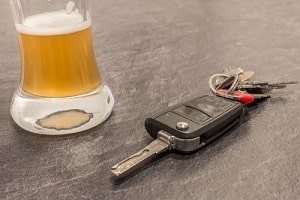2591 Dallas Parkway, Suite 207A, Frisco, TX 75034
Free Consultations
469-333-3333
 |
DO I HAVE TO GO TO TRIAL IN TEXAS? |
Recent Blog Posts
What Are the Consequences of Underage Drinking and Driving in Texas?

Driving while intoxicated (DWI) is treated as a serious criminal offense for Texans of any age, but underage drinkers are subject to even more stringent penalties. Texas not only has separate laws for driving under the influence (DUI) that apply to drivers under the age of 21 with any amount of alcohol in their system, but several other underage drinking offenses can also result in the loss of driving privileges. If you or your child has been arrested on an underage drinking charge, you should know about the potential legal consequences. An experienced criminal defense attorney can help protect your rights and driving privileges.
Texas Underage Drinking Laws
In Texas, underage drivers can be arrested for DUI if they have consumed any alcohol before driving. A police officer can make an arrest based on a blood alcohol content (BAC) test, even one with a result below the legal limit of 0.08 percent, or based on smelling alcohol on the driver’s breath. Texas law also prohibits someone under the age of 21 from purchasing, possessing, and consuming alcohol in most situations, as well as being drunk in public. A person arrested for the first time for any of these offenses may face Class C misdemeanor charges.
What Activities Are Considered White-Collar Crimes in Texas?

With the prosecution of new cases at the federal level for white-collar crimes down 25 percent in the last five years, it might seem easier than ever to get away with these nonviolent crimes. However, in the months since the beginning of the public health crisis, especially shortly after the enactment of the Defense Production Act, the Justice Department has been adamant about investigating and prosecuting white-collar criminals who are seeking to make illegal profits off of the pandemic, be it through price-gouging, equipment hoarding, market manipulation, insider trading, or fraudulent sales activities. In that sense, a flurry of activity prosecuting white-collar crimes is likely to reverse the recent downward trend in the number of cases and, since these are usually federal crimes, Texas residents are just as likely to face such charges as any other Americans would be.
What Is an “Order of Nondisclosure” in Texas and When Would I Need It?

You may have already heard about expunctions in Texas. This is when you and your lawyer are able to go to court to wipe your criminal record clean of charges. This is particularly useful to people who do not have multiple offenses and simply want to get that “one bad mistake” removed from their record so they can move forward with their lives. However, getting that “clean slate” that everyone hopes for is not a given; some people do not qualify for it. In those cases, an Order of Nondisclosure might be the right choice. Here is how a nondisclosure order can help you and how you can qualify for one.
Benefits of a Nondisclosure Order
How Can I Defend Against Criminal Theft Charges in Texas?

Last month, looting took place across the nation after protests turned violent, including in Texas. In consideration of this recent uptick in theft, it is worth thinking about what you should do if accused of theft in Texas. In some cases, the penalties can be severe depending on the circumstances surrounding the incident. Below are some effective strategies you and your lawyer can use to challenge these criminal charges if you or someone you know is facing such charges.
Key Strategies for Winning a Theft Case
While there are many defense strategies that are unique to each theft case, here are some common and effective steps to fight these charges:
-
Disproving Intent—As with many criminal law issues, the intent is critical. If you are not aware that you are breaking the law, then are you really even breaking the law? Here are a few ways this might play out in the courtroom during a theft trial:
How Can a Lawyer Help Your DWI With a Child Passenger Case in Texas?

If you thought getting charged with a DWI was bad enough, consider the consequences of a DWI with a child passenger. Should you be accused of such a crime, even if it is the first time you have ever been accused of any crime, you could still face significant consequences, including substantial fines, jail time, probation, and other penalties, not to mention child endangerment allegations that could put your child’s custody in jeopardy. If you or someone you know is facing DWI with a minor passenger charge, hiring a skilled criminal defense attorney should be your first step in figuring out an effective defense strategy.
What Is Considered Self-Defense in Texas?

There has always been a social battle about the safety of guns — do you feel safer with a gun in your hands or without one? The state of Texas allows gun ownership with the proper training and permits. Most people who own weapons use them for hunting or protection purposes. In fact, many who face gun charges use self-defense as their legal defense tactic. Since it is common for this tactic to be used, Texas law illustrates what is considered self-defense to protect those who were defending themselves while also obtaining justice for gun violence victims when the situation warrants.
Actions of Self-Defense
Known as “protection of persons” in Texas legislature, anyone who reasonably believes that immediate force is necessary to protect themselves is warranted to use this force against their attacker. The following three elements must be present in order for the situation to be considered a valid concern of threatened danger, thus warranting self-defense:
Are Jury Trials By Videoconference the Future in Texas?

The U.S. Constitution states: “The accused shall enjoy the right to a speedy trial.” However, after months of the pandemic postponing jury trials, even now the courts have slowed down due to precautions being taken for public safety. In a sense, that right to a speedy trial has been put into jeopardy. About a month ago, the justice system in Collin County was among the first in the nation to offer a jury trial by videoconference. While the trial did reach its conclusion, it was not without complications, which made it all the more beneficial that the case itself was a civil, non-binding summary jury proceeding. In other words, as a test case with this new technology, its failure would not be of great detriment to anyone’s life or livelihood as with many criminal proceedings, such as those for homicide, DWI, or even drug possession. However, merely being open to this shows that Collin County might be willing to adopt something similar in the future for more types of cases. The following are the pros and cons of this new trend in technology.
How Can I Find the Right Attorney For My Case?
 Since there are numerous crimes with which you could potentially be charged, including DWI, drug possession, theft, and assault, there is a wide variety of defense strategies to be employed depending on the offense. Finding an experienced attorney to stand by your side is crucial to your case, but this can be a daunting task. If you are searching for a qualified defense attorney but are unsure what to look for, there are a number of qualities that show that the attorney at hand has the necessary skills to understand your case and provide you with insightful legal advice.
Since there are numerous crimes with which you could potentially be charged, including DWI, drug possession, theft, and assault, there is a wide variety of defense strategies to be employed depending on the offense. Finding an experienced attorney to stand by your side is crucial to your case, but this can be a daunting task. If you are searching for a qualified defense attorney but are unsure what to look for, there are a number of qualities that show that the attorney at hand has the necessary skills to understand your case and provide you with insightful legal advice.
What to Look for in an Attorney
What Are My Rights During an Arrest in Texas?

Whether you are being arrested for DWI, theft, assault, drug possession, gun charges, homicide, or any other number of criminal offenses, you should always pay close attention to what is happening while you are being arrested. Depending on what the arresting officer does or does not do, your rights may be violated. A skilled criminal defense attorney might gain additional information that can help bolster your defense. In some situations, your charges may be reduced or dropped altogether if the police did not follow proper procedures or engaged in misconduct.
What Should I Do if I Am Accused of Domestic Violence During a Crisis?

The public health crisis that we have witnessed over the last few months caused by COVID-19 has resulted in numerous stay-at-home and shelter-in-place orders being declared throughout the nation, including in Texas. While many of these orders have been lifted or are on the way to being lifted, there is still one simple fact resulting from these challenging times: more and more people have been stranded at home than in the past. There are many consequences of this new normal, but one particularly prevalent result that cannot be overlooked is the likelihood of more domestic violence reports. If you find yourself facing such charges, a skilled criminal defense attorney can help you avoid a conviction.
The Accuser Is Not Always Right
It is common for people to side with the person reporting domestic violence. That person is typically viewed as the victim, no matter what the evidence or lack thereof might suggest. However, the very factors that can contribute to surges in domestic violence reports during uncertain times like these may also be reasons that these claims could be found to be false or otherwise disproven in court. Here are a few examples of how that can occur:


 600+ DWI & CRIMINAL DEFENSE TRIALS
600+ DWI & CRIMINAL DEFENSE TRIALS
















